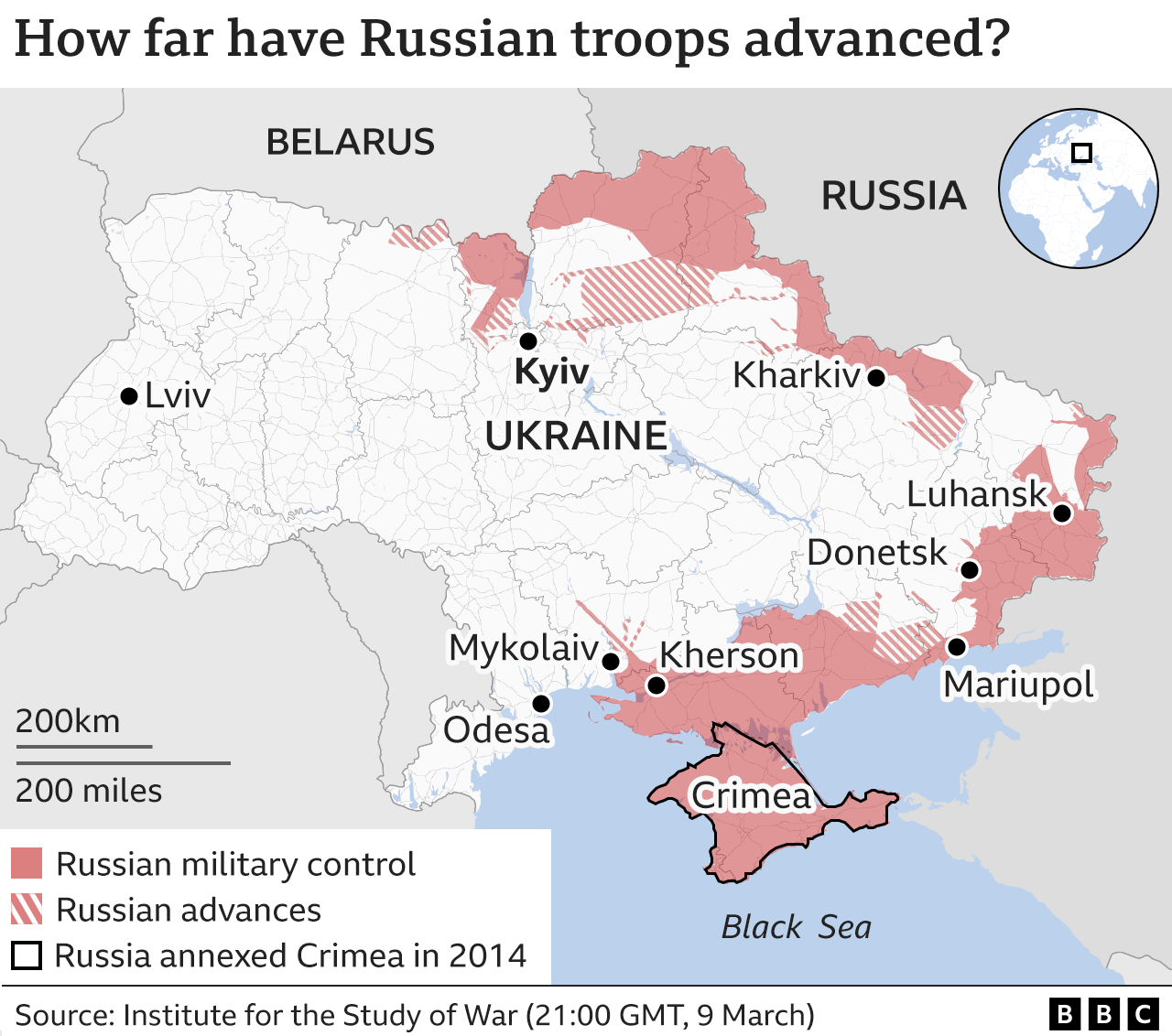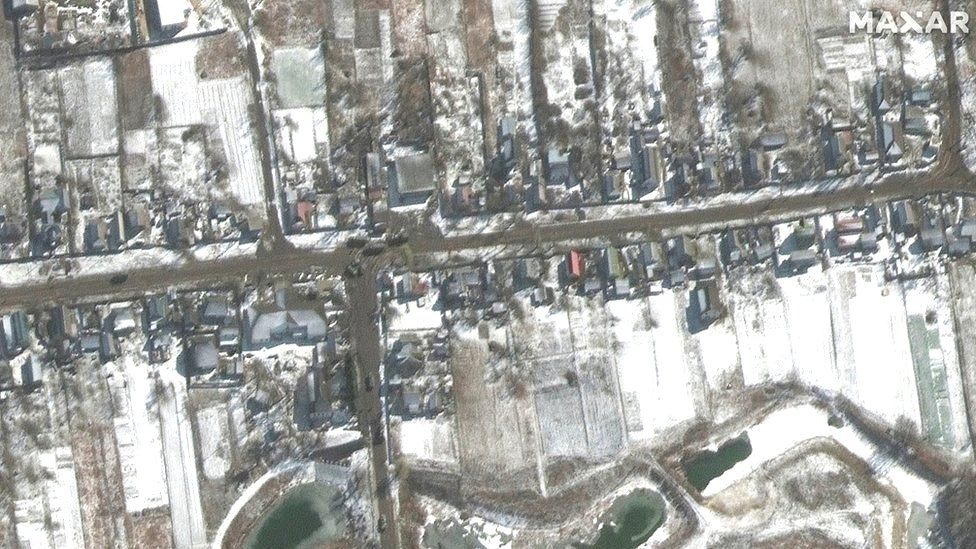Satellite images taken by a US firm of a large Russian military convoy near Ukraine’s capital, Kyiv, show it has “largely dispersed and redeployed”.
The convoy was last seen near Antonov Airport, north-west of Kyiv, and its movement could signal a renewed push towards the city.
The firm that took the photos, Maxar Technologies, said parts of the convoy were in positions in surrounding towns.
Other parts are further north, with artillery now in firing positions.
Blasts in cities on opposite sides of the country were reported on Friday morning:
- An airfield and jet engine factory were targeted in Lutsk, in the north-west
- In Dnipro, a major stronghold in central eastern Ukraine, one person was reported dead in air strikes
- Explosions also hit airfields at Ivano-Frankivsk, in the south-west, according to Russian defence officials
“Ukrainian big cities are again subjected to devastating blows,” said Ukrainian presidential adviser Mikhailov Podolia.
He added that the shelling in Lutsk had shut down two central heating compounds.
“Russia’s destructive war against civilians and major cities continues,” he said.
Russian state media reported that the Ukrainian city of Volnovakha had been captured by Russian-backed separatist forces.
There is no independent confirmation of the capture of the city, which is a northern gateway to the besieged port city of Mariupol.
President Volodymyr Zelensky has rejected Russian claims that chemical weapons or weapons of mass destruction were developed in Ukraine. In a video address, he also warned that Russia would get “the most severe sanctions response” if it were to use such weapons against Ukraine.
The US said earlier that Russia’s claims of Ukraine hosting US-backed chemical weapons facilities was a “false flag”, intended to justify Russia’s possible use of such weapons.
Russia has requested an emergency meeting of the UN Security Council to discuss the alleged manufacture of biological weapons in Ukraine.

Russian forces moved three miles (5km) closer to Kyiv in the past 24 hours, a senior US defence official said on Thursday.
That meant Russian troops advancing from the north-west were now just nine miles from the city centre, the official – who spoke on condition of anonymity – told reporters.
Russian forces were also trying to close in on the city from the north-east, and were now about 25 miles (40km) away, the official added.
The official also said that the northern city of Chernihiv was now “isolated”.
The convoy was earlier seen stalled not far from the capital, where US officials said it was targeted by Ukrainian troops with anti-tank missiles. It is not clear how many of the vehicles currently seen on the move may have been an initial part of that first group.

Fierce battles have been raging in recent days in Irpin and Buchan, satellite towns just a few kilometers north-west of Kyiv. Thousands of civilians have been forced to flee their homes.
On Thursday, footage emerged apparently showing a Russian military column being hit by Ukrainian forces near the city of Bovary, just outside the capital.
Kyiv Mayor Vitali Klitschko says that half the population of the city of about three million has already fled, adding that Kyiv “has been transformed into a fortress”.
“Every street, every building, every checkpoint has been fortified,” the mayor said.
Tens of thousands of civilians have formed Territorial Defence units to help the Ukrainian armed forces defend the capital.












